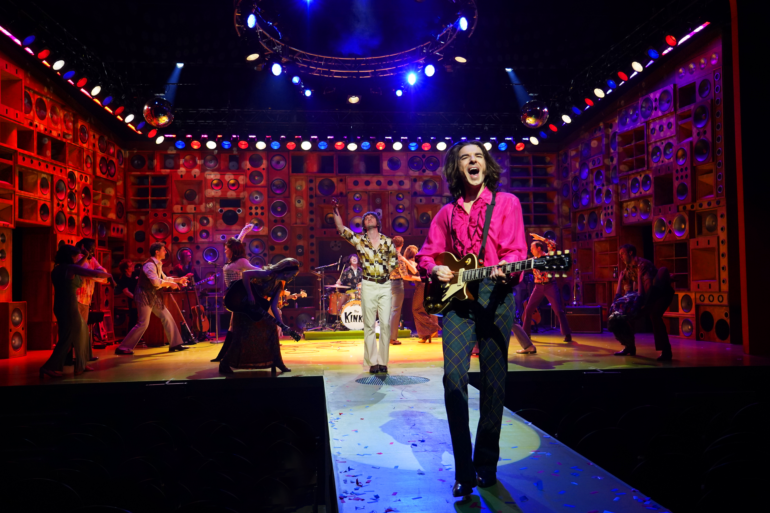The music of The Kinks, marked by raw riffs and a rebellious spirit, has long held a place in rock history — a reflection, Edward Hall says, of the band’s unwavering honesty. “They never sold out,” says Hall, director of Sunny Afternoon at Chicago Shakespeare Theater. “They did things their own way.”
Sunny Afternoon, which premiered for the first time in North America on March 21, tells the story of Ray and Dave Davies, brothers who grew up in working-class North London and rode their unrelenting vision to stardom. The show brings to life the tumultuous rise of The Kinks through a concert-like musical experience. Featuring hits like “You Really Got Me,” “Lola,” and “All Day and All of the Night,” the show celebrates both the band’s chaotic energy and their enduring influence.
Hall, who directed the original Olivier Award-winning West End production, has returned to helm the show’s U.S. debut, ensuring that the production’s heart — the tension between family loyalty and creative freedom, and the unapologetic authenticity that makes The Kinks’ music feel as vital now as it did in the ‘60s — remains front and center.
Hall was first struck by the show’s ability to channel the music’s visceral impact to a modern audience when he heard the UK cast play the iconic riff from “You Really Got Me” on “the right guitars, through the right amps” for the first time.
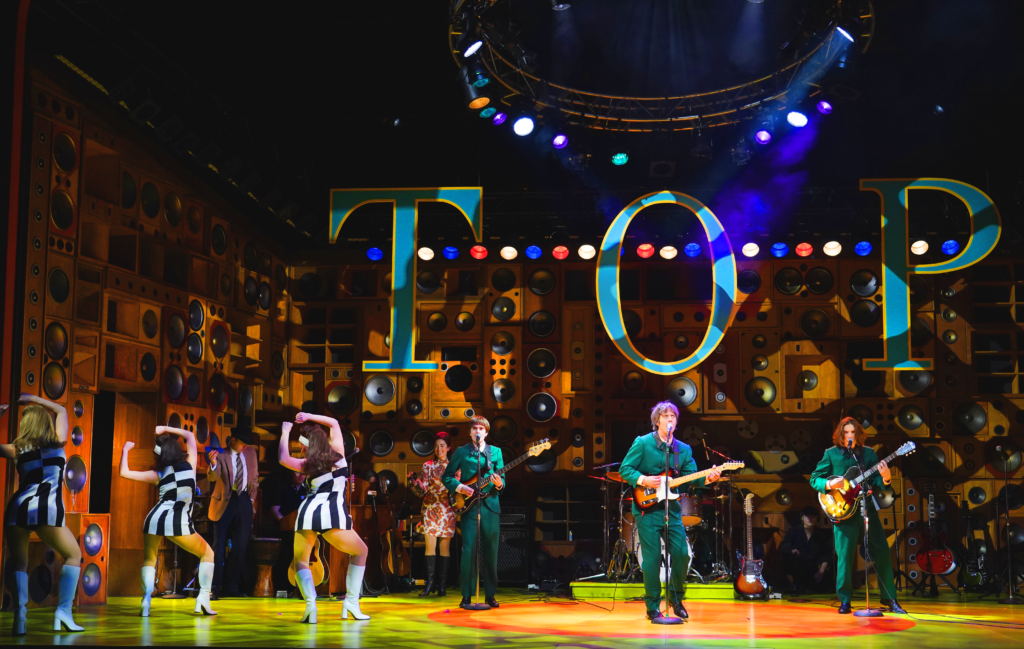
“I remember that morning so vividly,” he says. “It felt like I could understand what audiences in the ’60s must have felt — like the air itself was moving. That sound caused not just a musical revolution but a social revolution.”
Now, Hall is delivering that same electric energy to a new audience.
The British Invasion’s Defiant Outsiders
The Kinks churned out chart toppers for decades, but their career unfolded on a more turbulent path than many of their British Invasion counterparts. While The Beatles and The Rolling Stones maintained carefully polished images in their early years, The Kinks fought against conformity at every turn — and paid for it.
“They didn’t fit the mold,” Hall says. “The Beatles and The Stones followed the industry’s rules. The Kinks refused to compromise. They stuck to their sound, their roots — and that refusal to play along made their path much harder.”
The band’s real-life volatility kept them from breaking out in America at the height of the British Invasion. Their 1965 U.S. tour was plagued by internal tensions, mismanagement, and disputes with promoters and unions over paperwork and payments, ultimately leading to a ban by the American Federation of Musicians that kept them out of the U.S. for nearly four years.
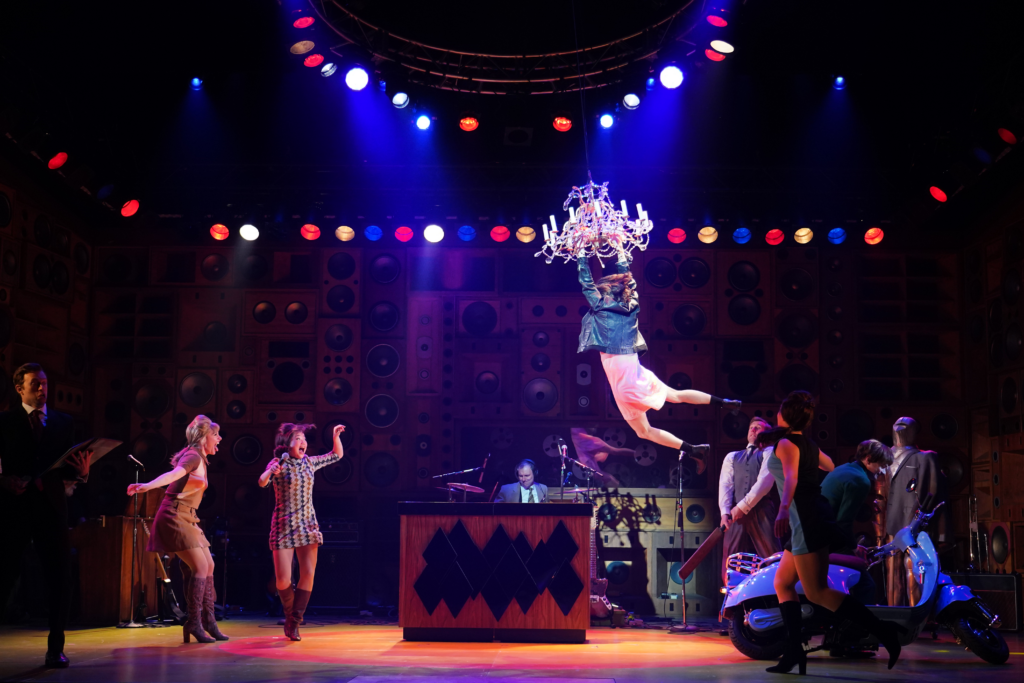
Playing the Part — and the Guitar
Capturing that sense of rebellious authenticity on stage was no small task. Hall spent five months casting Sunny Afternoon, searching for performers with a unique skill set.
“You’re not looking for a traditional musical theater voice,” Hall explains. “You’re looking for something unproduced — something that sounds like it’s connected to the performer, just as they are.”
The cast needed not only to deliver powerful acting performances but also to play their instruments live.
“We had to find people who could sing, act, and play instruments — guitar, mouth organ, trombone, drums — and all in the right key,” Hall says. “You can’t fake that.”
Hall sings the praises of the talented cast, including Danny Horn and Oliver Hoare, both professional musicians as well as actors, who reprise their West End roles as Ray and Dave Davies.
“I really felt right from the beginning that this story was all about music and how music was made and how it was written and how it was performed,” he says. “So to get people really connected with that, it was really important to me that the performers could do it almost as well as The Kinks.”
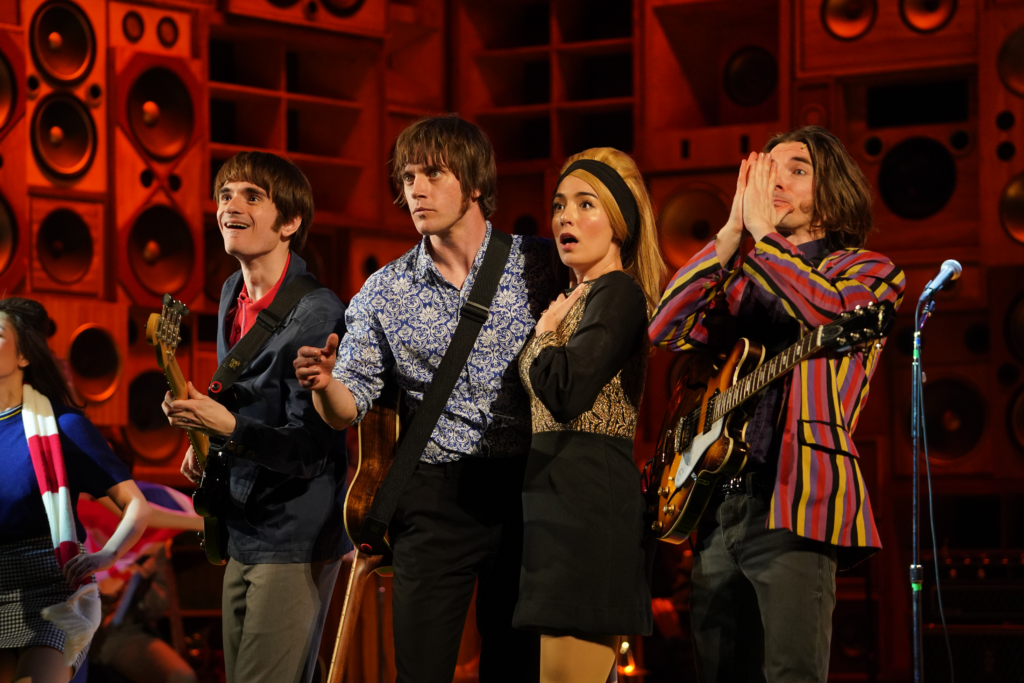
From North London Living Room to Madison Square Garden
And to do it as well as The Kinks, they needed the right gear. To create the Kinks’ iconic sound, more than a dozen different vintage guitars, including a Gibson Flying V, Guild Starfire IV, Harmony Meteor, Fender Telecaster and Electric XII, and Gibson Les Paul Goldtop, were selected with guidance from The Kinks’ frontman Ray Davies, and paired with 1960s Vox AC30 amps.
“When you hear this, it will be as close as you will ever get to hearing what people actually heard in 1964,” Hall says. “It’s like the greatest rock sound you’ve ever heard — it’s eye opening.”
That energy extends into the audience — literally. The stage features a runway that juts out into the crowd, turning key moments into a full-blown rock concert.
“There’s a moment where the cast is playing ‘All Day and All of the Night’ and they’re right there, standing among the audience,” Hall says. “I wanted people to feel like they’re at a gig — that the music is crashing over them.”
The show’s structure intentionally blurs the line between concert and narrative, alternating between intimate family moments and raucous, high-energy performances.
A towering wall of amplifiers forms the backdrop of the set, evoking both the intensity of a live rock concert and the cramped intimacy of the band’s early creative spaces.
“Sometimes you’re in their living room, watching Ray and Dave write a song,” Hall explains. “And other times, you’re in the middle of a full-on rock show.”
The design — carried over from the original UK production — was inspired by a vintage photograph and brought to life by set designer Miriam Buether, who recently earned the 2024 Olivier Award for Best Set Design for Stranger Things: The First Shadow.
“I found a black-and-white photo of a teenage kid in a bedroom, playing guitar next to a big amplifier, crammed in with all these different speakers,” he recalls.
‘Waterloo Sunset’ — The Heart of the Show
For Hall, the emotional centerpiece of the show comes late in the second act with “Waterloo Sunset,” a song he calls “the most perfect pop song ever written.”
“It’s about London,” Hall says. “But it’s more than that — it’s about home. Whatever home means to you, wherever that is.”
That connection is deeply personal for Hall, who relocated from London in 2023 to take on the role of Artistic Director at Chicago Shakespeare Theater.
“It’s the only song that makes me homesick,” he says. “Ray captured something so universal in that song — that feeling of belonging, of being grounded in a place. Whether you’re in Chicago, Addis Ababa, or Helsinki, it resonates.”
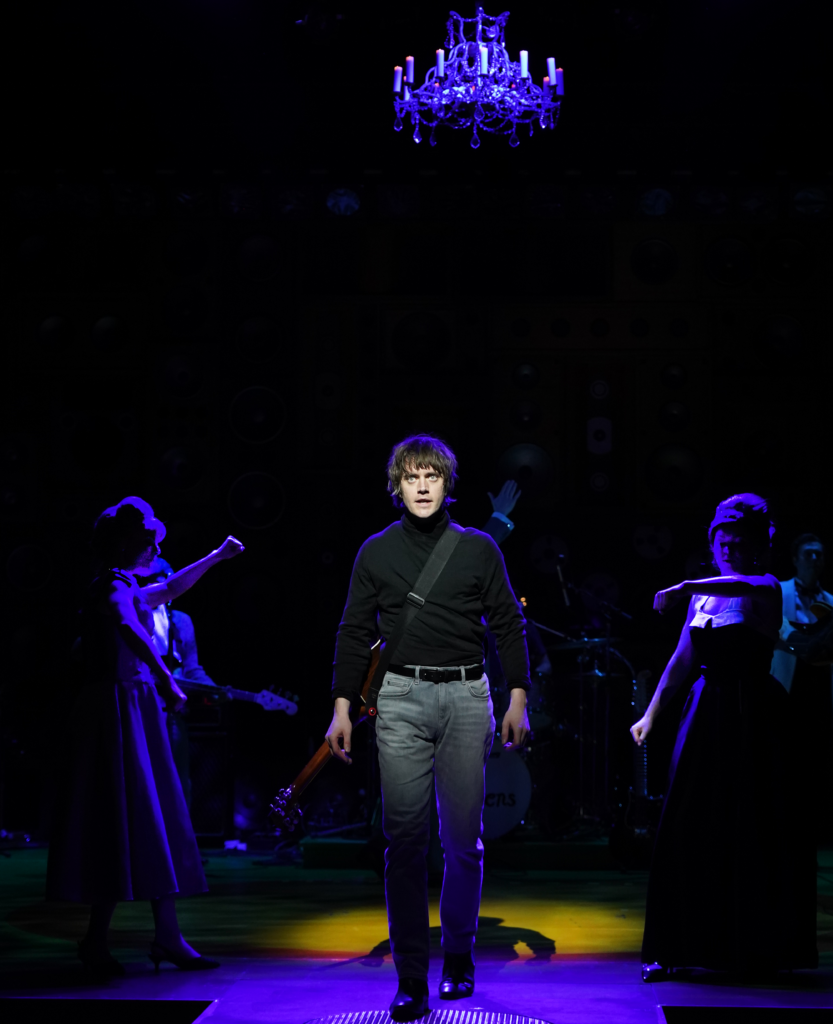
The Soundtrack You Didn’t Know You Knew
While The Kinks remain a household name for many, Hall acknowledges that their influence doesn’t always register right away — even for him.
“I thought I knew a few Kinks songs,” Hall admits. “But when we started rehearsals, I realized I knew every single one. The music is just woven into our lives.”
Their influence extends far beyond their own chart-topping hits. Oasis, Blur, Tom Petty, Pete Townshend, and countless other artists have cited The Kinks as a major inspiration. Even Jimi Hendrix once asked Dave Davies how he created his distinct, distorted guitar sound.
“Jimi Hendrix was trying to figure out how Dave made that sound,” Hall says. “That’s how influential they were.”
Beyond the music’s sonic force, Hall says it’s the honesty in Davies’ lyrics — especially their social awareness — that gives the story enduring weight.
“Perception and truth — those are complicated ideas in our world right now,” Hall says. “At the height of the music- and fashion-driven Swinging Sixties, Ray was saying, ‘This is all an illusion.’ He was asking, ‘What about people on the breadline? What about working-class people?’”
Davies’ refusal to lose touch with his working-class roots, even as the band rose to fame, is part of what makes Sunny Afternoon feel relevant no matter the decade.
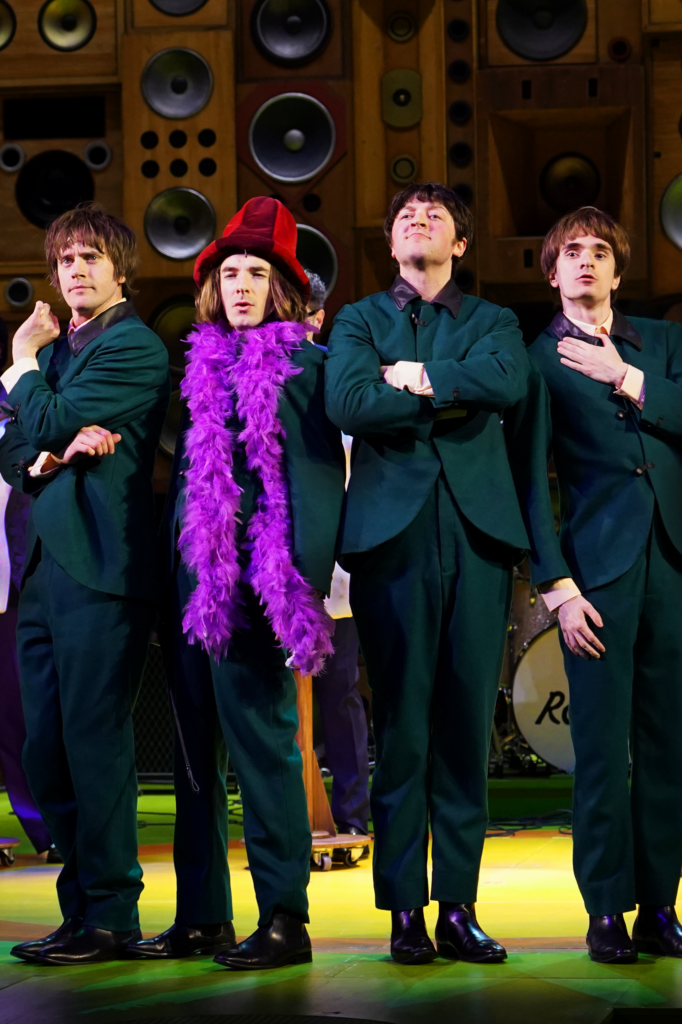
The Kinks in Chicago: Still Relevant, Still Unfiltered
Hall, who has spent much of his career in the UK, sees Chicago as the perfect place to introduce Sunny Afternoon to American audiences.
“Chicago is a music city,” Hall says. “The Kinks played here back in the day — and it didn’t go well. But that chaotic energy — that defiance — is part of what makes their story so compelling.”
With Chicago’s vibrant music scene and a venue that Hall calls “the perfect size” for blending intimacy with electric energy, he hopes Sunny Afternoon will introduce a new generation to The Kinks — and remind longtime fans why their music still matters.
“It’s a rags-to-riches story and a story about the rock music business, but more importantly, it’s about family — and about sticking to your beliefs, even when that creates friction,” Hall says. “Wherever people are in their lives, I want this show to feel like a tonic — something that lifts you up and reminds you why music can be so powerful when it’s honest, uncompromising, and real.”
Sunny Afternoon runs March 21 – April 27 at The Yard at Chicago Shakespeare Theater. For tickets or more information, visit chicagoshakes.com/sunnyafternoon and follow @chicagoshakes on social media.
How to Help
Whether you’re discovering The Kinks for the first time or rediscovering their music in a whole new way, seeing Sunny Afternoon is a great place to start. But it’s just one part of what Chicago Shakespeare Theater brings to the city year-round — bold productions, educational programming, and a commitment to making live theater accessible to all.
CST is working to break down barriers for audiences across Chicago — with ASL-interpreted and Spanish open-captioned performances, and a new bus scholarship program that’s already helped more than 1,500 Chicago Public Schools students attend matinees this season.
If you believe in the power of live theater to inspire, entertain, and bring people together, consider making a gift to support this work. Donations of any size help sustain CST’s mission. Leadership gifts of $1,000 or more include membership in the Bard Circle, with special benefits like personal ticketing service and access to exclusive content and events throughout the year.
From Navy Pier to stages around the world, CST’s reach continues to grow — and it starts with your support.

More from Better Magazine
- ‘Determined to Prove a Villain’: Paralympian Katy Sullivan Takes on ‘Richard III’ at Chicago Shakespeare Theater
- Happiness Is a Skill: These Science-Backed Tools Can Help You Master It
- From Diagnosis to Canvas: How Brushes With Cancer Uses Art to Bring Strength and Healing to Cancer Journeys
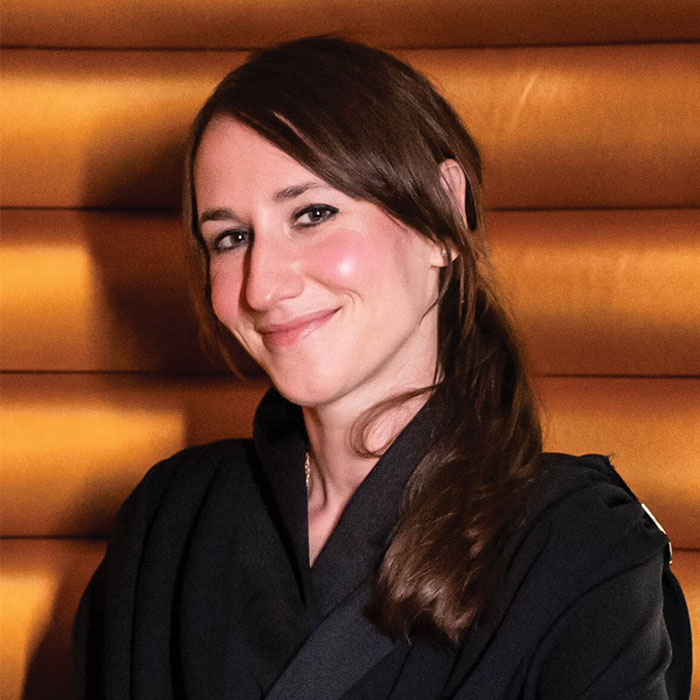
Brooke McDonald is the editor in chief of Better Magazine. She regularly reports on entertainment, theme parks, and travel and her work has appeared in Insider, The Points Guy, Parents, TravelPulse, Yahoo, and more. Her favorite nonprofits to support include SeaLegacy and the Vitalogy Foundation Follow her on Instagram @brookegmcdonald, Threads @brookegmcdonald, and X @BrookeGMcDonald.
